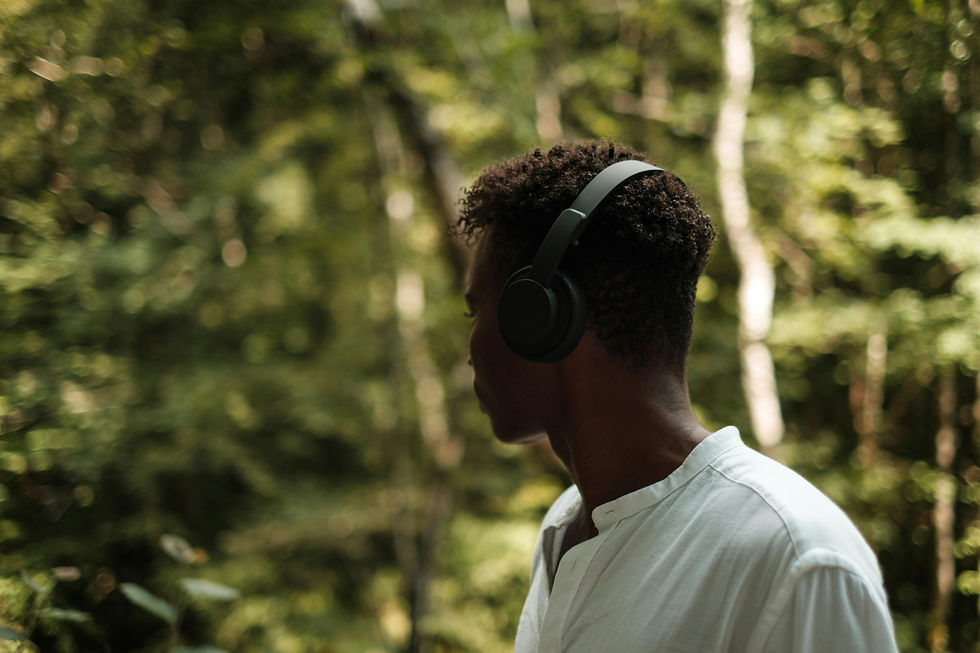Music As Medicine: Suicide Prevention Month
- Sep 29, 2023
- 3 min read

Suicide is a global public health concern. Over 700,000 people around the world take their own lives each year, and the numbers continue to increase. Prevention requires a multifaceted approach that addresses not only the psychological and social aspects of the issue but also provide the person with solid coping tools for the future. Research confirms that sound and music can be a useful tool for combating suicide as well as coping with things like anxiety and depression which greatly contribute to suicide and suicidal thoughts. Sound and music have been integral to human culture for millennia, and recent research has illuminated their role in promoting mental well-being. In this article, we will explore the ways in which sound and music can be harnessed as powerful tools in the fight against suicide.
Music is an emotional outlet
Music is a universal language for the expression of emotions. Many individuals facing suicidal thoughts struggle to communicate their feelings, leading to isolation and despair. Music offers a safe, non-verbal outlet for these emotions, allowing individuals to process and release their pain. Playing an instrument, singing, or even just listening to music can provide solace and a means to convey emotions that are otherwise difficult to articulate.
Mood Regulation and Stress Reduction
Sound and music have a profound impact on our emotions and physiology. They can influence our mood, reduce stress, and promote relaxation. When tailored to an individual's preferences, music can help stabilize emotions and alleviate anxiety or depression, both of which are risk factors for suicide. Our recent articles on music therapy and the brain on music demonstrate some of the ways in which music and sound can be a useful tool for addressing emotional and psychological needs.
Connection and Community Building
Engaging with sound and music often involves social interactions, which can mitigate feelings of loneliness and isolation—common experiences among those at risk of suicide. Group music-making, such as singing in a choir, playing in a band, or even community drumming fosters a sense of belonging and shared purpose. This sense of connection can act as a protective factor against suicide by providing individuals with a supportive community.
Artistic Expression and Storytelling
Creating music allows individuals to tell their own stories and experiences. For those facing suicidal thoughts, composing songs or writing lyrics can serve as a powerful form of artistic expression and self-reflection. Artistic endeavors not only offer a creative outlet but also encourage self-discovery, self-esteem, and a sense of accomplishment, which are vital in the journey toward recovery.
“I just need a way out of my head / I’ll do anything for a way out of my head /...and I was drownin’ but now I’m swimmin’ / through stressful waters to relief.” (Mac Miller // Come Back To Earth)
Many artists turn to music to cope with overwhelming thoughts and emotions. Doing so can can redirect a person's focus and provide respite during moments of crisis. Mac Miller was known for his lyrics like the ones quoted above that resonate with people suffering. Rapper Logic created a song with Alessia Cara and Khalid titled “1-800-273-8255” to encourage people suffering with suicidal thoughts to get help. The title of the song is actually the phone number for the suicide prevention hotline. Singer, Kehlani, is also very outspoken about her thoughts on suicide. During one of her shows, she delivered a powerful speech encouraging people struggling to get help. Check it out in the video below.
Conclusion
Sound and music have a profound impact on our emotional and psychological well-being. By recognizing their therapeutic potential, we can harness the healing power of sound and music to complement existing suicide prevention efforts. Encouraging creative expression, fostering connections, and incorporating music therapy into mental health care are all steps toward a more holistic approach to preventing suicide.
What are your thoughts on using sound and music for suicide prevention? Let us know @healthandbass :)
.png)




Comments